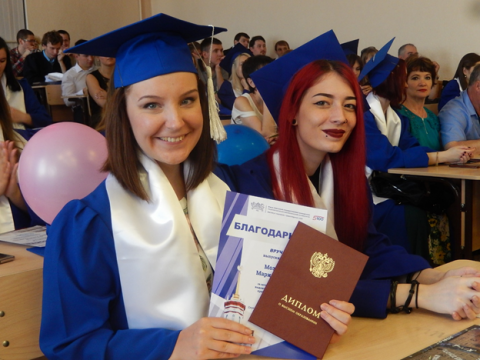Annually, on May 24, our country celebrates the Day of Slavic Writing and Culture, which is a national holiday for our country. On this day, we turn to the origins of our cultural memory, paying tribute to the creators of the Slavic alphabet, to the holy Equal-to-the-Apostles brothers Constantine and Methodius.
It is no coincidence, that there is a tradition to celebrate Philologist’s Day on May 25, after the Day of Slavic Writing, because philology is a science that studies culture expressed in language and creative writing. A philologist is a person with a broad outlook, a high personal culture, competent speech, who can adapt his or her oral or written speech to the requests of any audience. And such specialists are trained at the SUSU's Institute of Media, Social Sciences and Humanities.
.png)
"The modern digital era imposes new requirements on the humanitarian knowledge system and significantly affects the Humanities," says Lidiia Lobodenko, Director of the Institute of Media, Social Sciences and Humanities, Doctor of Sciences (Philology). "The emerging concept of Digital Humanities reflects the role and importance of the humanitarian sphere in the modern world and is based on the foundations of philological knowledge. Therefore, the current humanities scholars need skills in working with modern digital technologies."
Over the many centuries of its existence, the science of philology as a basic humanitarian knowledge and a repository of cultural experience has learned to respond to the demands of the times.
According to the Head of the Department of Russian Language and Literature at the SUSU's Institute of Media, Social Sciences and Humanities, Doctor of Philology, Professor Tatiana Semyan, Digital Philology is the future that has already arrived. Today it is not enough for a philologist to possess a classical set of knowledge on the history and theory of language and literature. In order to be in demand in the profession, you must have the skills to perform the key tasks of digital humanities.
.png)
SUSU's Philology students have unique opportunities for the development of new relevant competencies. In the classes of Digital Technologies in Applied Philology, and Multimedia Technologies in Applied Philology, students of the SUSU Department of Russian Language and Literature study the principles of creating digital products by philologists, learn how to conduct examination of texts for websites, blogs and social networks, to study the visual component of the text, create content for websites, and implement virtual literary projects.
It is not speculative theoretical knowledge that students receive here. Studying with the use of design technologies, students master practical professional skills that will certainly be in demand in their future activities.
.png)
So, students of the Department of Russian Language and Literature at the SUSU Institute of Media, Social Sciences and Humanities have created three unique literary websites:
-
Website about contemporary Russian culture and literature called Divan, in which students complete the entire production cycle: from generating ideas to implementing them;
-
Website dedicated to the famous InVersiia poetry festival, which is part of the program of the Debarkader contemporary art festival held in the Historical Museum of the South Ural Region;
-
A unique project, the website of the Virtual Museum of South Ural Writers, where students developed not only the literary and biographical content, but also the interactive elements for immersing in the world of a writer, which are so interesting to visitors of online resources in the era of total visualization.
All the projects were completed as part of final projects, what demonstrates the high qualification that students of the SUSU's Institute of Media, Social Sciences and Humanities obtain.
.png)
Those who want to study both in a useful and interesting format, can enrol in Philology at the SUSU's Institute of Media, Social Sciences and Humanities on a state-funded or contract basis.
In modern conditions, philology is a good basic education and opens up broad prospects for future professional activities.




